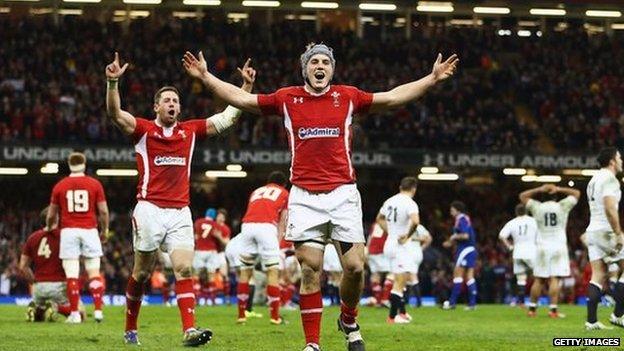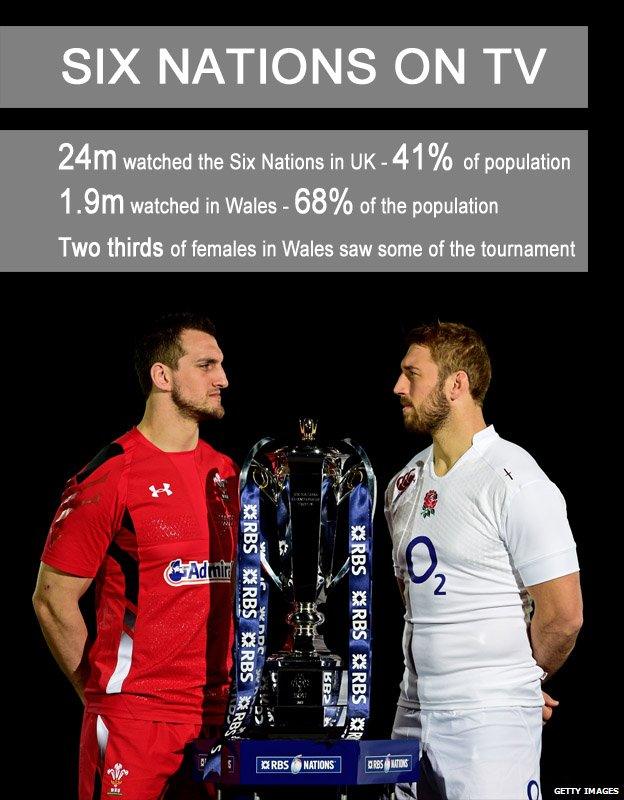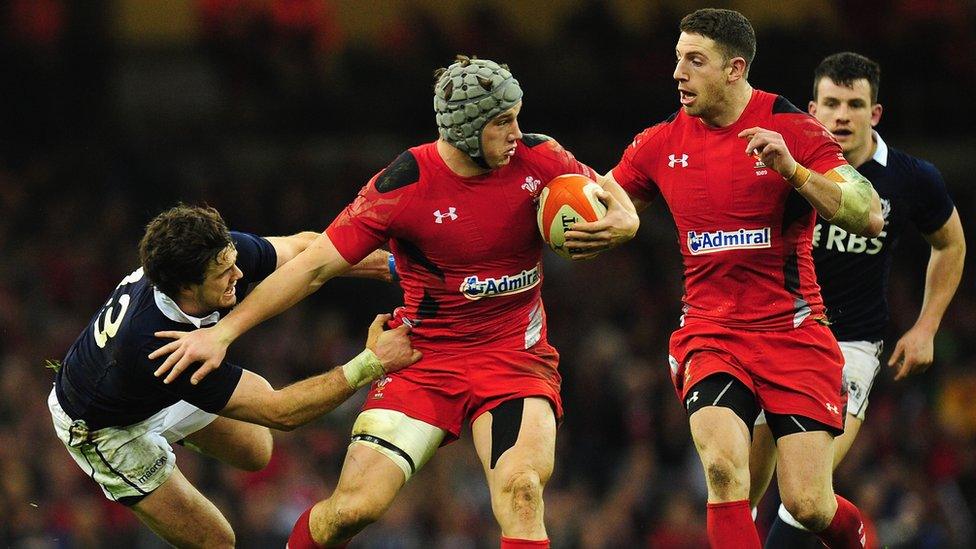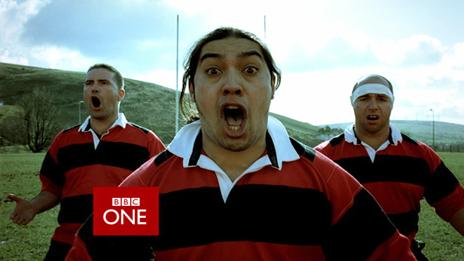Six Nations 'free TV' protection urged by minister
- Published

Four of the top five TV audiences in Wales since 2011 have been Six Nations matches
The Welsh culture and sports minister has written to the UK Government to call for rugby's Six Nations to be protected as a free-to-air TV event.
Ken Skates AM has written to new Culture Secretary John Whittingdale to press for the tournament to remain on terrestrial TV.
The current deal with the BBC lasts until the end of the 2017 competition.
The UK government says it currently has no plans to review the list of protected sporting events.
But Mr Skates said rugby's future could be damaged if fewer young people had access to matches on pay-TV.
"Suddenly you're reducing the number of people watching the event, particularly young people who get inspired by watching the sport," said Mr Skates.
"Short term financial gain could cause longer term pain for those rugby clubs right across Wales who could see a drop-off in membership."
He warned it could be "very dangerous and damaging" if Six Nations rugby coverage was lost to satellite channels.

The peak TV audience for Wales v England in January was the highest in Wales since 2011
For the Wales v England opening match earlier this year, the in-home audience peaked at 1.12m, with an additional 150,000 people watching the match in a pub or club.
The same match two years before was the third highest TV audience in Wales this century.
Back in January, the Six Nations' chief executive John Feehan told the Daily Telegraph he was prepared to consider all options for the tournament's broadcasting deal, external, with BT Sport joining Sky Sports as a rival player in the pay-TV market.
There have been reports that the next TV deal could be worth £50m a season, external - a 25% rise on the existing four-year contract.
In recent years, the BBC has relinquished its exclusive rights to a number of sporting events, after failing to match the large sums offered by subscription TV services.
From 2017 live coverage of the Open Golf championship will be shown exclusively by Sky, while the BBC has shared coverage of Formula 1 with Sky since the 2012 season., external
Both Sky and BT Sport currently broadcast some or all of the games in other major rugby competitions including the Pro 12, the Lions tours and the European Champions Cup.
'Maximise the value'
Meanwhile the BBC has undertaken a period of cost-cutting, leaving it unlikely to be able to match the large sums that rival broadcasters may offer for the Six Nations, and diminishing the prospects of the BBC's current agreement surviving from 2018 onwards.
Mr Skates said he would continue to make representations to the UK government, although it was not a devolved matter.
"There's careful consideration to be given to the balance between raising revenue for the sport and making sure the vast majority of people in Wales are able to watch the events live. I do believe it should remain free-to-air on terrestrial television.
"It's important for the UK Government to recognise that rugby in Wales along with football are the two national games.
"The ball is firmly in the court of the UK Government and we will be pressing them to do the right thing."
Loss of free-to-air Six Nations would be "damaging" says Ken Skates
An official for the UK's Department for Culture, Media and Sport said the list of 'crown jewel' events given free-to-air protection is not about to be reviewed.
"Negotiations on television rights for the 6 Nations are a matter for the rugby authorities and broadcasters," said a spokesperson.
But William Field, founder of Prospero, a sports and media consultancy, said: "There's a big difference between the Six Nations entertaining bids from pay-TV and accepting bids from pay-TV.
"It would be failing in its duty to maximise the value of the event if it did not start reminding people, particularly the BBC, that if they don't pay enough for the rights next time then there is a pay-TV broadcaster who would be very, very glad to have this tournament on its channels."
A BBC spokesperson said: "We have no comment to make at this stage and in any case, the BBC does not provide a running commentary on commercially sensitive rights related negotiations and discussions."
Six Nations tournament officials would not comment.
- Published29 January 2015

- Published17 January 2014
